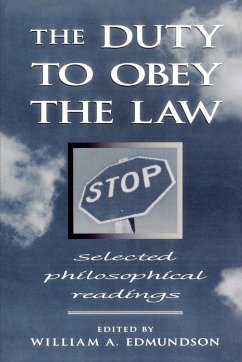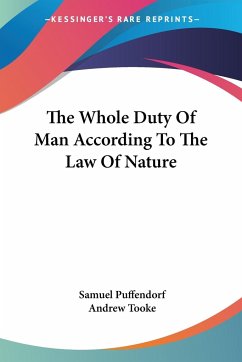
Duty to Obey the Law
Selected Philosophical Readings
Herausgeber: Edmundson, William A.

PAYBACK Punkte
76 °P sammeln!
The question 'Why should I obey the law?' introduces a contemporary puzzle that is as old as philosophy itself. The puzzle is especially troublesome if we think of cases in which breaking the law is not otherwise wrongful, and in which the chances of getting caught are negligible. Philosophers from Socrates to H.L.A. Hart have struggled to give reasoned support to the idea that we do have a general moral duty to obey the law but, more recently, the greater number of learned voices has expressed doubt that there is any such duty, at least as traditionally conceived.














